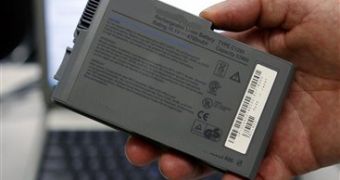One of the main issues with portable computer systems or devices is that they can't deliver the battery life required by most PC users. Over the years, different technologies have been developed to lower the power consumption of hardware components, but battery improvements haven't been significant. However, laptop batteries could soon provide as much as 40 hours of life between charges. That could be possible through a new technology developed by Mary Lou Jepsen, the former head of Intel's display division and chief technology officer at One Laptop Per Child.
According to a news article posted on PC Advisor, Jepsen plans to start shipping ultra-low power screens designed for laptops and e-books as soon as the second half of 2009. These screens could be used in devices that would allow users to read in direct sunlight and have a fully saturated HDTV-quality color mode. This basically means that, aside from better display quality, upcoming portable computer systems could also benefit from increased battery life.
"At Pixel Qi, we have a new series of inventions that go well beyond the OLPC screen that we are developing right now," said Mary Lou Jepsen. Pixel Qi is said to be planning the development of an entire laptop and PC designed to take advantage of the company's new screen technology, enabling some of the most power efficient models on the market.
One such product, currently in the development stage at Pixel Qi, is a new e-paper that is paper-white and can provide both color and video. It is said to have significantly lower power requirements over standard LCD screens and could allow companies to design new types of laptops boasting longer-lasting batteries.
"We are working with a number of notebook and e-book makers on a number of different form factors," Jepsen revealed. "We can enable an increase of 5-10X battery life between charges compared with a standard notebook. This means that rather than needing to recharge your batteries every few hours, you could run 20-40 hours of use on a one charge."

 14 DAY TRIAL //
14 DAY TRIAL //